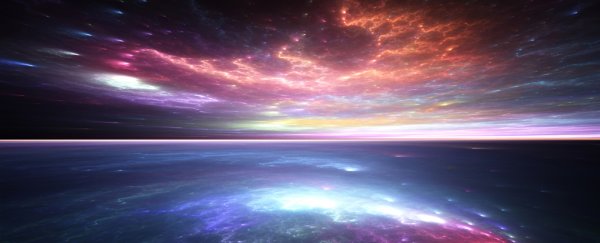The Big Bang didn't just result in our familiar universe, according to a mind-bending new theory - it also generated a second "anti-universe" that extended backwards in time, like a mirror image of our own.
A new story in Physics World explores the new theory, which was proposed by a trio of Canadian physicists who say that it could explain the existence of dark matter.
The new theory, which is laid out in a recent paper in the journal Physical Review of Letters, aims to preserve a rule of physics called CPT symmetry. In the anti-universe before the Big Bang, it suggests, time ran backwards and the cosmos were made of antimatter instead of matter.
This new theory is compelling, according to a news release about the new theory, because it would mean that the universe is filled with "very massive sterile neutrinos" that could explain dark matter, a mysterious material that is believed to make up much of the universe.
By the researchers' own admission, according to Physics World, many details of the new theory still need to be hammered out. But co-author Neil Turok, of the Perimetery Institute for Theoretical Physics in Ontario, argued in an interview with the publication that the new theory is a strong one because it relies only on known particles and fields, instead of assuming that new ones will be discovered in the future.
"There is this frame of mind that you explain a new phenomenon by inventing a new particle or field," he told Physics World. "I think that may turn out to be misguided."
This article was originally published by Futurism. Read the original article.
